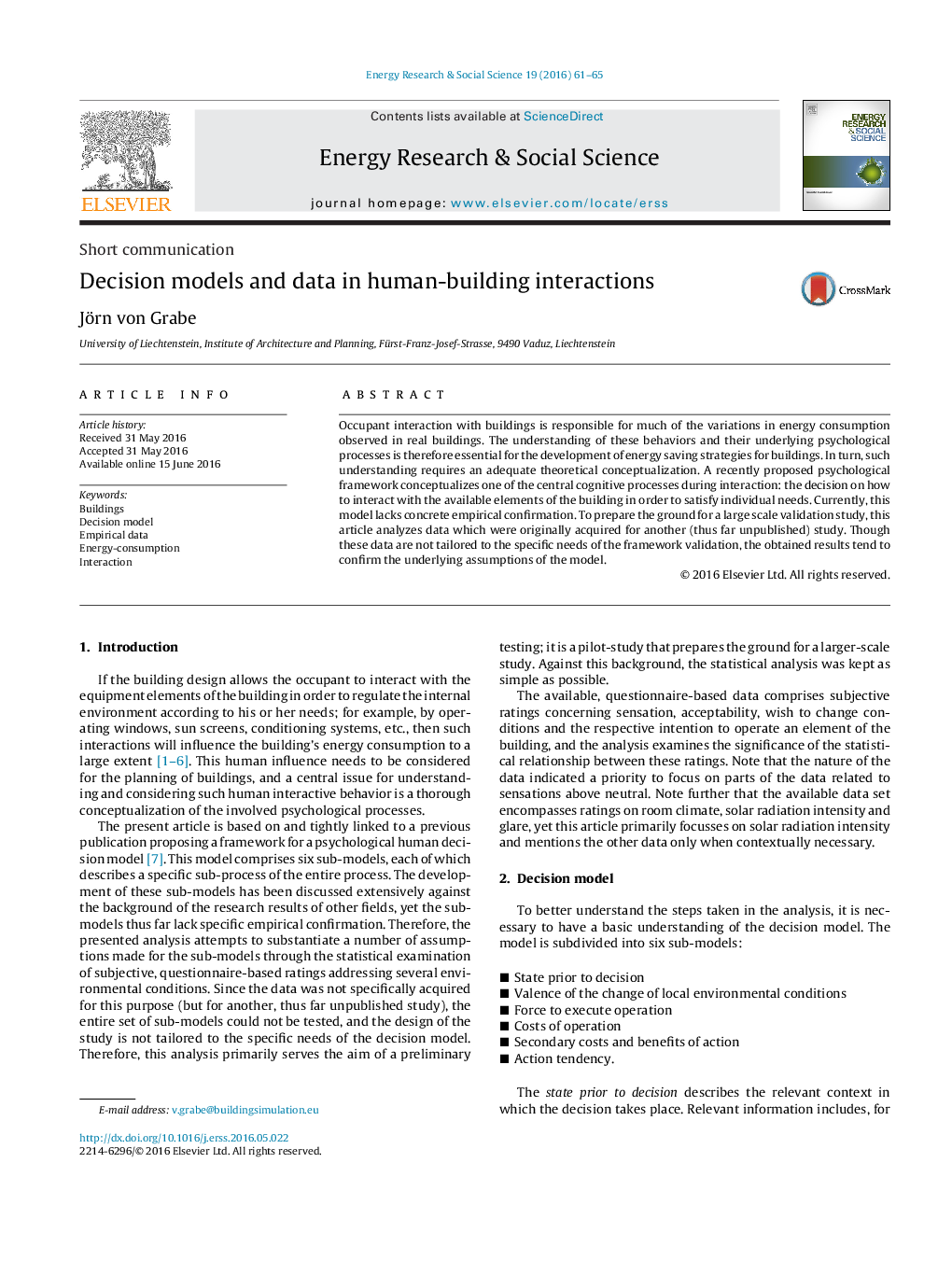| Article ID | Journal | Published Year | Pages | File Type |
|---|---|---|---|---|
| 6557895 | Energy Research & Social Science | 2016 | 5 Pages |
Abstract
Occupant interaction with buildings is responsible for much of the variations in energy consumption observed in real buildings. The understanding of these behaviors and their underlying psychological processes is therefore essential for the development of energy saving strategies for buildings. In turn, such understanding requires an adequate theoretical conceptualization. A recently proposed psychological framework conceptualizes one of the central cognitive processes during interaction: the decision on how to interact with the available elements of the building in order to satisfy individual needs. Currently, this model lacks concrete empirical confirmation. To prepare the ground for a large scale validation study, this article analyzes data which were originally acquired for another (thus far unpublished) study. Though these data are not tailored to the specific needs of the framework validation, the obtained results tend to confirm the underlying assumptions of the model.
Related Topics
Physical Sciences and Engineering
Energy
Energy (General)
Authors
Jörn von Grabe,
